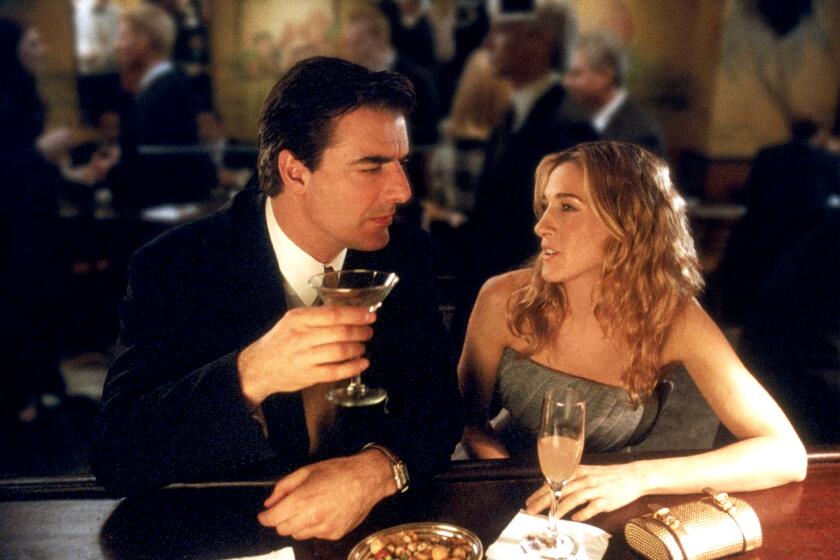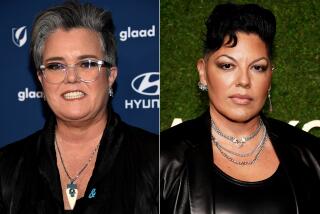Gen Z is watching ‘Sex and the City’ for the first time. Our discovery? Carrie is a terrible friend
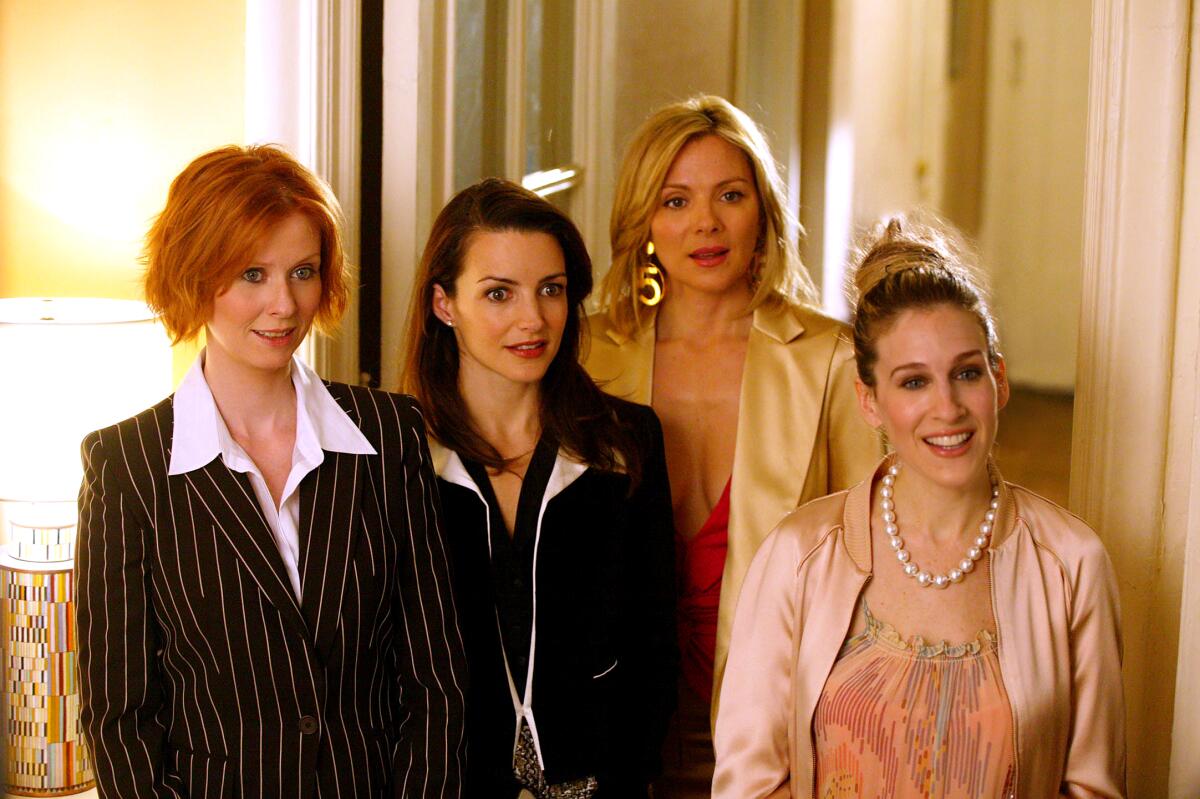
- Share via
“Sex and the City” is now one of Netflix’s most-watched shows as it settles into its new streaming home. Since the series’ April 1 debut on the platform, a whole new audience — many of whom weren’t born when the show premiered on HBO in 1998, changing the TV landscape — is discovering it. The comedy has been streaming on Max and on Hulu (through its Live TV plan), but the “Netflix effect” is unmatched.
The witty humor, the relatable dating woes and the core friendship that hold “Sex and the City” together make it a timeless treasure, and it’s starting to resonate with a new generation.
As a Gen Z woman trying to catch up on pop culture phenomena like “SATC” that came before my time, I’ve started diving into some episodes with friends. We laugh, we debate whether we’re a Charlotte or a Miranda and we wonder what it would’ve been like to carry beepers.
The hit HBO series is now streaming on Netflix, drawing in new and old viewers alike and bringing Carrie Bradshaw’s two big love interests back into the spotlight.
One recent viewing party gave me pause about my enthusiasm for the show. In Season 4’s “Ring a Ding Ding,” Carrie — famously played by Sarah Jessica Parker — is dealing with some financial troubles. She has only $957 in her savings account and can’t get a loan to buy her apartment back from ex-fiancé Aidan. When Charlotte doesn’t offer her money, unlike her two other best friends, Carrie storms into Charlotte’s apartment to interrogate her.
Carrie makes her financial burden Charlotte’s problem and proceeds to shame her for not offering help. It’s a bad look for her (and I’m not talking about some of her more questionable fashion choices).
This scene reminded me of plenty of others where she behaves selfishly. And I couldn’t help but wonder … is Carrie an awful friend?
Twenty years ago, it all started with a female voice.
Over the many brunches, Cosmopolitans and city excursions that Carrie, Miranda, Charlotte and Samantha share, Carrie tends to shift conversations to revolve around her problems. If she’s not complaining about work or money, then she’s complaining about Big. Or Aidan. Or how awful she feels about cheating on Aidan with Big.
Her girlfriends address this with her many times throughout the show, most notably when they gently suggest she should see a therapist. “I don’t need therapy, I need new friends,” Carrie replies before insulting Miranda and calling therapy “self-indulgent.”
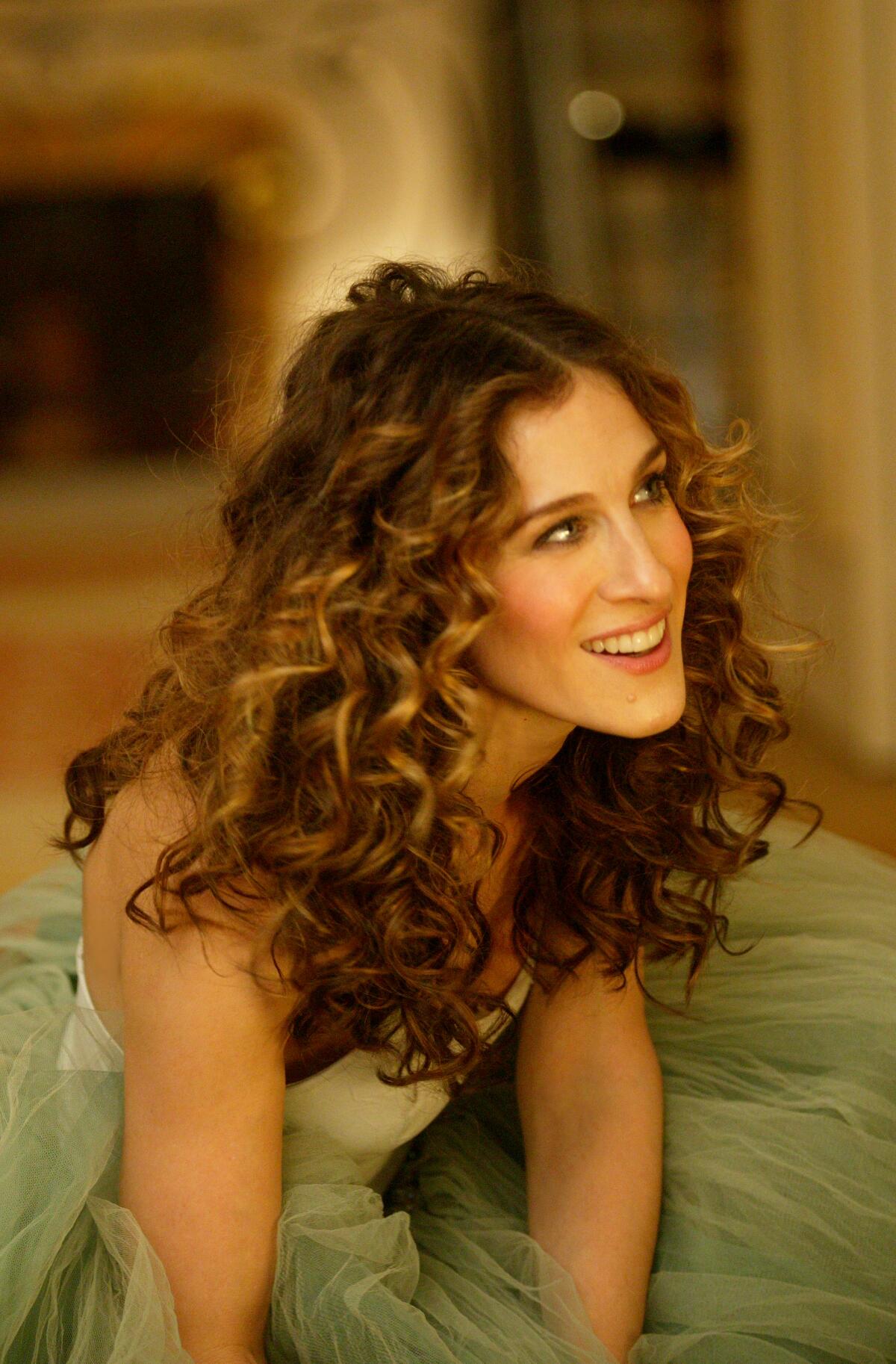
The discourse over Carrie’s own self-indulgent behavior has become a popular topic on TikTok. Recent videos that highlight Carrie’s “worst moments” or dub her the “villain” of the show have netted hundreds of thousands of views. The “SATC” Reddit page is also bustling with first-time viewers calling out her behavior.
In one resurfaced viral clip, Carrie makes Charlotte’s engagement about her own breakup. Her boyfriend Berger dumps her via a Post-it note. At lunch, after Charlotte shows off her new engagement ring, Carrie sticks the breakup note on the ring and says, “Paper covers rock,” signaling that she only wants to talk about herself that day.
The reexamination of Carrie’s character is nothing new. A blog titled “Carrie Bradshaw Is the Worst” that started in 2019 has been posting a detailed breakdown of Carrie’s questionable behavior from practically every episode. As the show’s original audience grows up and rewatches the series, taking a closer look at the revered characters is natural. Traits that once seemed like quirks suddenly take on new meaning.
When “Sex and the City” arrived on HBO in June 1998, sopranos were still singers with high voices, Larry David was the guy who wrote “Seinfeld,” and “Six Feet Under,” “Deadwood” and “The Wire” were years away from being credited with starting a revolution of original cable series programming.
Carrie’s missteps and flaws all boil down to her inability to show up for her friends when they need her (when Miranda hurts her neck after getting out of the shower, Carrie sends Aidan, who finds Miranda naked on the bathroom floor). Whether she’s skipping out on dinner plans with the girls to hang out with Big or dismissing their relationship issues to talk about her own, she often doesn’t provide the same level of support and empathy as the other women on the show.
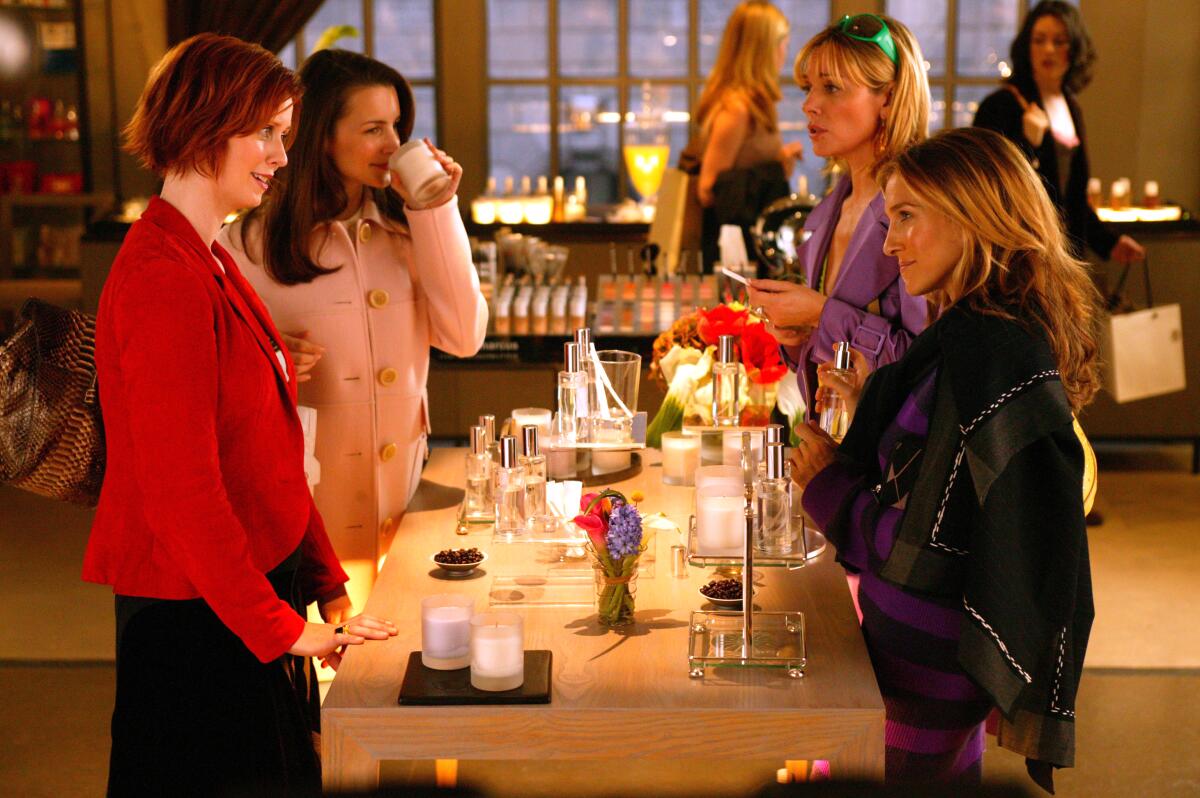
I had always thought (or hoped) there was a little bit of Carrie in me. She was a successful writer in New York City with an impossibly expensive wardrobe, a singular style, good friends and a lot of spunk. From afar, her life sounded like a dream.
But once I started watching the show, I didn’t want to identify with her at all. Were my complaints to my friends that whiny? Did I dominate group conversations like that? Was my writing that trite?
But maybe Carrie being a bad friend, making bad decisions and choosing the wrong guys is the whole point. Maybe it’s easy to dislike Carrie because she represents the parts of ourselves that we don’t like. Maybe Carrie is there to teach us to take a step back and recognize our own flaws.
Maybe Carrie isn’t so bad after all.
More to Read
The complete guide to home viewing
Get Screen Gab for everything about the TV shows and streaming movies everyone’s talking about.
You may occasionally receive promotional content from the Los Angeles Times.
